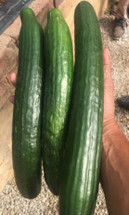Posted by henri pereira on 29th Jun 2019
AQUAPONICS VS HYDROPONICS - MYAQUAPONICS SOUTH AFRICA
Aquaponics Vs Hydroponics?
The questions keep streaming in on whether to go the aquaponics or hydroponics route. The answer, of course, is dependent on what you want to achieve, your budget, climate and whether you are doing it as a hobby or on a commercial scale.
What do you want to achieve?
Are you looking at growing plants only, or are you also looking to farm with fish?
If you've been watching too many YouTube videos painting the picture that aquaponics is a miracle system and that you will be producing sustainable amounts of fish, you will be disappointed. Yes, with aquaponics you will be producing a fair number of plants (and that should be your focus), with the fish as the ammonia producers. Ammonia then gets converted to plant food (nitrates) by beneficial bacteria. Fish will not be a sustainable product in small aquaponics systems, or even larger commercial systems. To put it into perspective, it takes a good 12-18 months for most species of tilapia (Rendalli or Mossambicus) to reach 400-500 grams in captivity. Taking into account that your recommended stocking densities of fish in aquaponics should be in the region of 20-30Kg of fish per 1000 liters of water in the fish tank, that would equate to 40 to 60 x 500 grams fish every 12 to 18 months if you have a 1000 liter fish tank.
Also keep in mind that the FCR (food conversion ratio) of tilapia in captivity is 2:1. That means that you have to feed a fish 2Kg of high grade fish food for it to get to 1 Kg.
Aquaponics as a hobby, is for those people who have an affinity for keeping fish, whilst at the same time, want to grow plants for own consumption, using the fish to contribute to the plants's nutrient requirements. In other words, those that want to mimic nature in their own backyards, keeping away from harmful pesticides and other chemicals. In other words, Aquaponics are for those who prefer a bigger challenge.. LOL :)
If you want to farm with fish, then you need to be doing aquaculture. If so, then you should incorporate an aquaponics system to your fish tanks to use up the nutrients produced by the fish, which would otherwise go to waste. Every aquaculture system should introduce aquaponics to their operations.
Hydroponics on the other hand is a plant producing machine. Plants are grown in nutrient rich water. Hydroponics has many benefits over conventional gardening or soil grown plants. Less water is used, plants grow quicker and healthier and no weeding is required. Of course many people are against using commercial nutrients to grow plan for own consumption, and hence why some decide to go the aquaponics route.
The Hobby or Backyard Route
Generally we have two types of customers that want to do aquaponics as a hobby, or a means to grow vegetables for own consumption, the natural way.
- The start up customer (first timer)
- Those that have a fish pond or koi pond
A big trend lately is for those with fish ponds or koi ponds in their backyard, to connect aquaponics grow beds to it. A Koi pond for example already has all the filters required for a healthy eco system full of beneficial bacteria that convert toxic ammonia into nitrates. This equates to a nitrate factory which can cause unwanted algae growth in the ponds. By diverting this nitrate rich water through some plant grow beds, you get the benefit of growing your own food, whilst at the same time reducing the nitrate level in the pond.
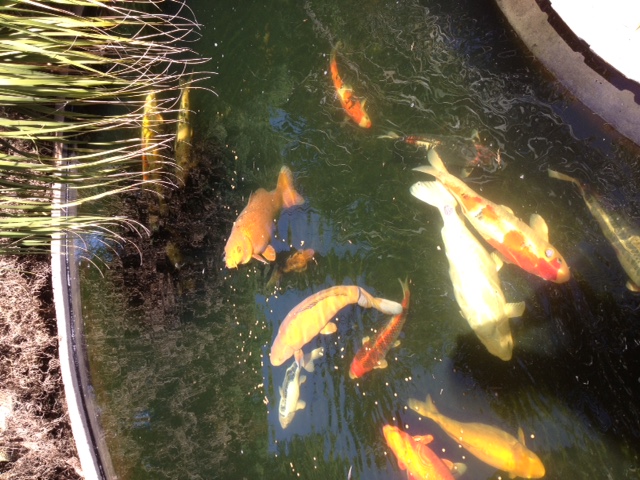
Koi Pond Converted to Aquaponics
If you are starting up a system from scratch with the goal of producing plants only, for own consumption, and not bothered about fish or commercial nutrients, then hydroponics is the route.
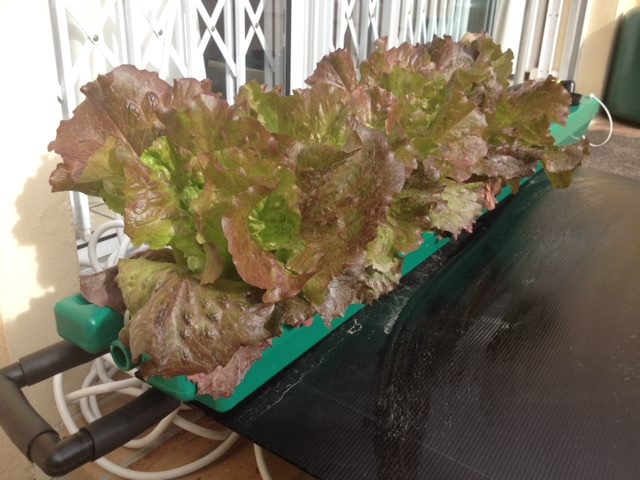
Lettuce growing in a DIY Hydroponics home system using the Floot
If however you love fish and would like to harvest a couple of fish every year, then Aquaponics is for you.
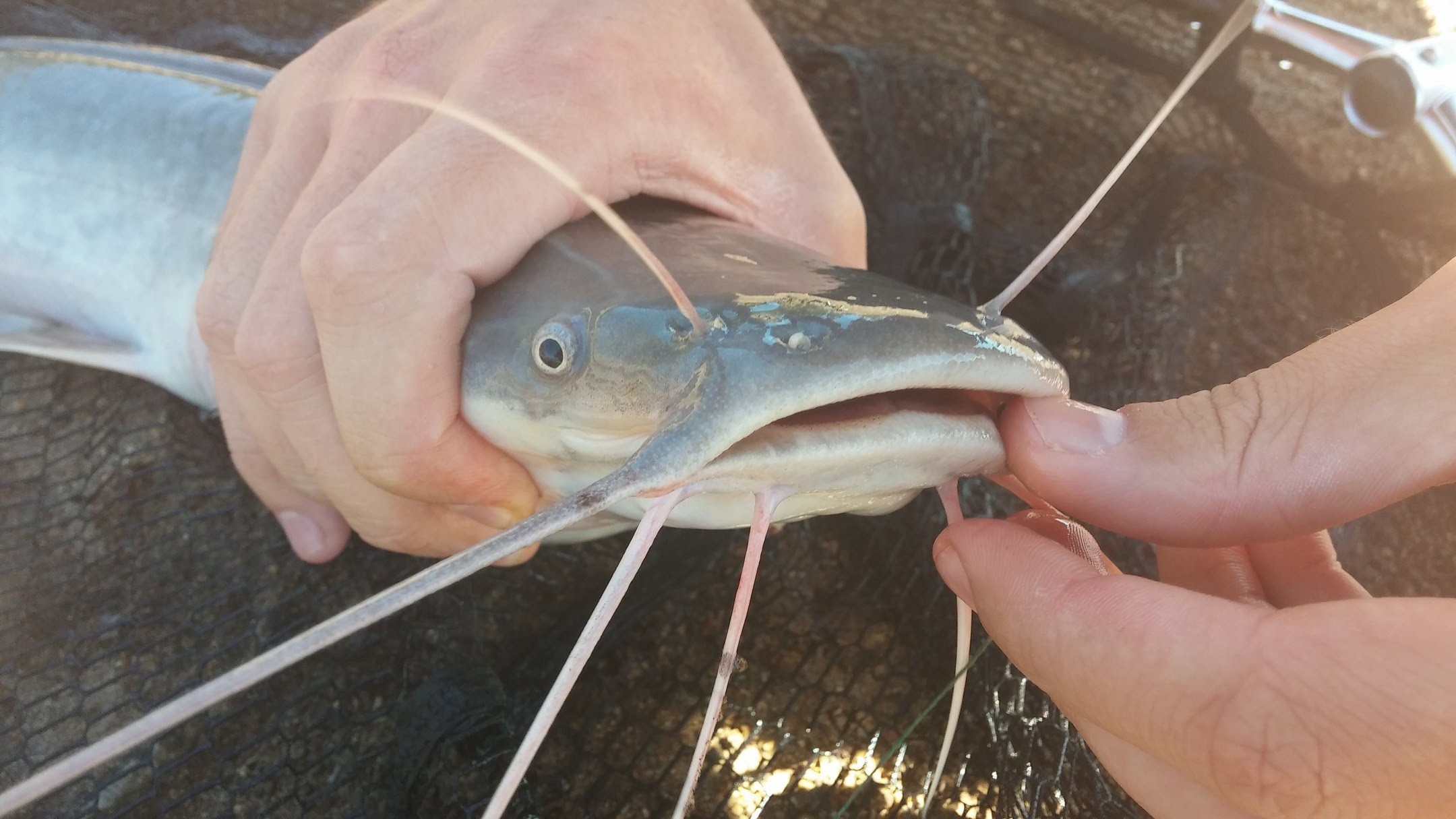
African Catfish in our Aquaponics system
As a hobby, both Aquaponics and Hydroponics are very rewarding. Aquaponics more so, as you get to see the fish and the plants grow.
Commercial Scale
The biggest difference between an Aquaponics vs Hydroponics commercial system is the fact that Aquaponics requires a more elaborate design, taking the needs of the fish and the bacteria into account. This means mechanical filters and bio filters and recirculating water systems.
Though some modern hydroponic systems are now using a re-circulating water system, most are still non-recirculating systems, which are not water or nutrients efficient. Lots of waste in these commercial hydroponic systems, which can lead to underground water being contaminated. The reason why its still being practiced in South Africa however, is that its much cheaper t build a drip system then it is to build a water re-circulating system.
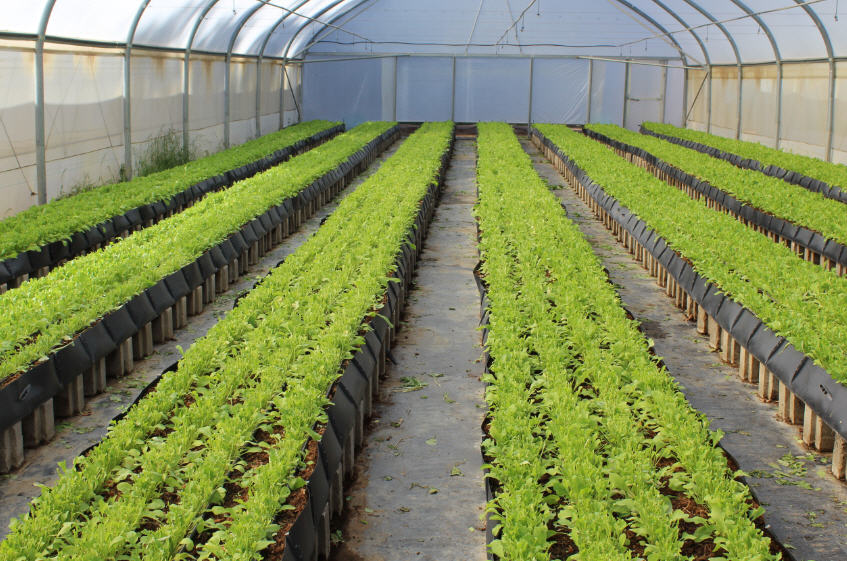
A Commercial Hydroponics System
Commercial 30 x 10 m hydroponic tunnels or greenhouses, with a drip irrigation system will cost anything between R180K-R200K. For a recirculating system, an additional R50K-R100K. An Aquaponics system in the same 30x10m tunnels would cost closer to R300K-R350K, depending on the system design, this being a result of it requiring fish tanks and filters.
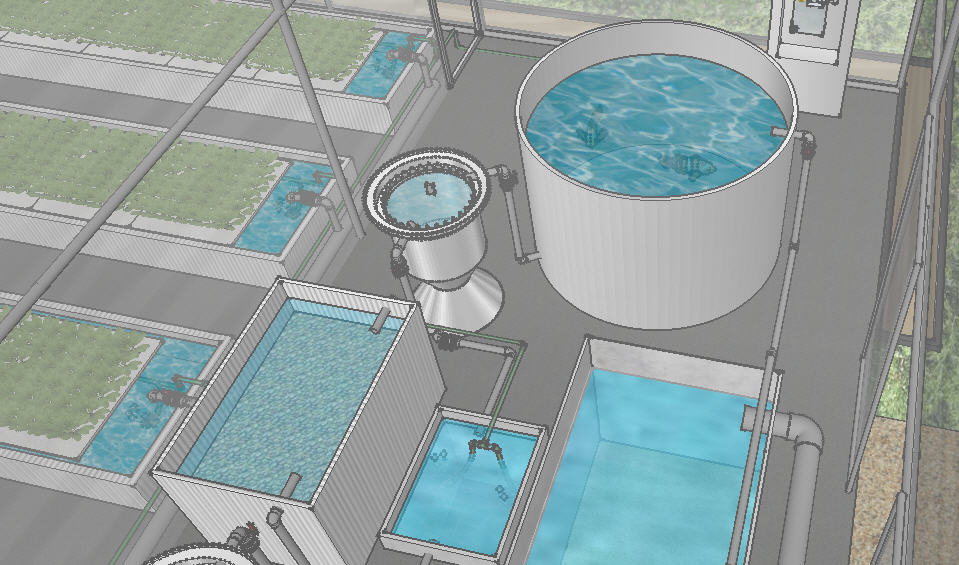
A Commercial Aquaponics System Design Showing Tanks & Filters
One other thing to keep in mind in a commercial aquaponics or hydroponics system, is the cost of nutrients to maintain the plants strong and healthy.
In aquaponics, fish will contribute nutrients in the form of ammonia that gets converted into nitrates. This however needs to be supplemented with the likes of calcium, potassium, magnesium and iron. These elements are generally not present in fish food. Commercial fish food at R15-R20 per Kg is a very expensive method to produce nitrates, so if you can feed your fish cheaper or free alternatives, then your potential profits will get closer to that of a commercial hydroponics system. Due to the correlation of water temperature to a fish's eating habits, it is also more prudent to establish a commercial aquaponics system in tropical or sub-tropical locations where water temperatures can remain close to the optimal 25 Degrees C. The most successful aquaponics commercial farms are located in Hawaii and the Philippines.
CONCLUSION - Aquaponics vs Hydroponics
Its really up to you to decide based on the above-mentioned.
For the backyard enthusiast, Aquaponics is a lot more fun, and more natural. If you have children, its a great learning tool for them. They love the concept that fish can be used to grow plants and they love feeding and watching the fish grow. Teaching your children to grow their own food is one of the biggest gifts you can give them.
If the winters are very cold and if you don't have the means to heat the water in a cost effective way, then hydroponics may be more prudent.
When it comes to commercial systems, hydroponics would certainly be cheaper than Aquaponics to build and to maintain. You could however, potentially charge more for your Aquaponics produce than for your hydroponics produce, if you are able to convince the customer that it is totally natural and has no chemicals or pesticides.
If you're out in a remote area where it is difficult to source commercial nutrients, then aquaponics may be the better alternative.
And of course, if you already run an aquaculture (fish farm) operation, then aquaponics should definitely be incorporated to use up all the excess nutrients being produced in your fish tanks. The plant produce could be used as fish food, for own consumption, or an extra revenue of income by selling it to the local market.

